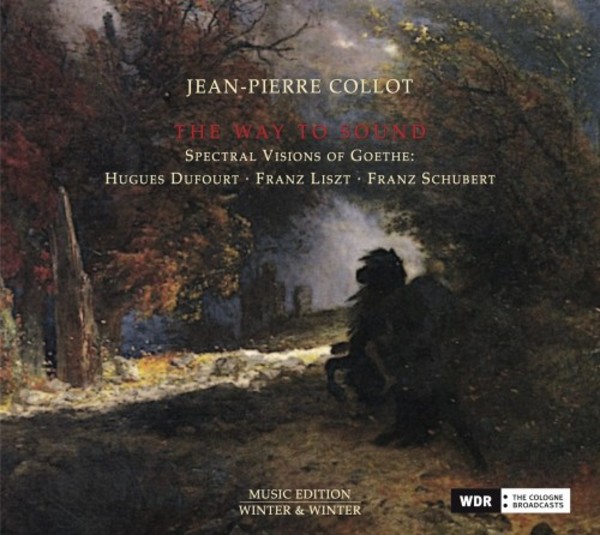
Dufourt, Schubert, Liszt & Czerny - The Way to Sound: Spectral Visions of Goethe
£17.05
In stock - available for despatch within 1 working day
Despatch Information
This despatch estimate is based on information from both our own stock and the UK supplier's stock.
If ordering multiple items, we will aim to send everything together so the longest despatch estimate will apply to the complete order.
If you would rather receive certain items more quickly, please place them on a separate order.
If any unexpected delays occur, we will keep you informed of progress via email and not allow other items on the order to be held up.
If you would prefer to receive everything together regardless of any delay, please let us know via email.
Pre-orders will be despatched as close as possible to the release date.
Label: Winter & Winter
Cat No: 9102622
Format: CD
Number of Discs: 1
Genre: Instrumental
Release Date: 3rd April 2020
Contents
Works
An Schwager KronosErlkonig
Meeresstille
Rastlose Liebe
Lieder (12) von Franz Schubert, S558
Artists
Jean-Pierre Collot (piano)Works
An Schwager KronosErlkonig
Meeresstille
Rastlose Liebe
Lieder (12) von Franz Schubert, S558
Artists
Jean-Pierre Collot (piano)About
‘Why did I choose An Schwager Kronos to begin with? On the one hand because the world of Sturm und Drang interested me, Goethe of course. There was the reference to Schubert, and I always found Schubert's choices brilliant, especially in his relationship to Goethe's poetry … Everything starts with Goethe anyway. Goethe shaped perhaps the most eminent period in the history of European culture. Goethe shifts the view of things in cultural matters, in the sense that his poetry ends up giving more importance to geological times than to historical times. Goethe thus introduces something unique, absolutely singular, once again, which is this instantaneous perception in the most fleeting moment, this perception of the millennia underlying this landscape he is contemplating. This awareness has changed I think the nature of music, German and Austrian music in particular …’ – Hugues Dufourt
Error on this page? Let us know here
Need more information on this product? Click here